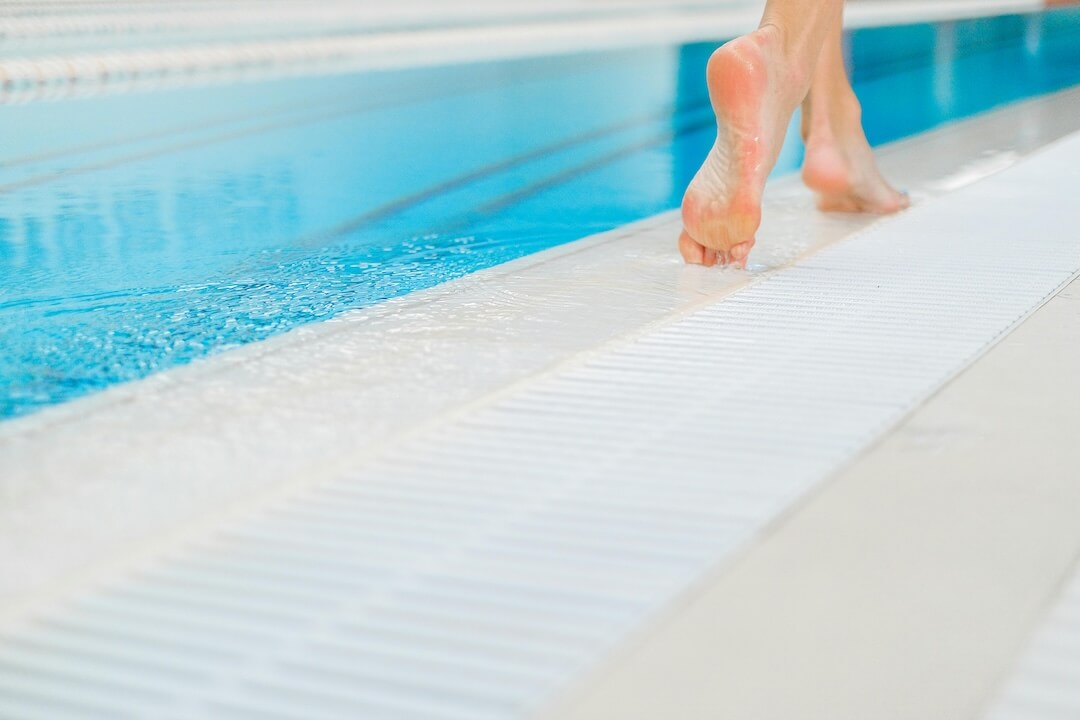Keep your swimming pool pristine and balanced by mastering calcium hardness management. Our experts in North Canary Palm share essential insights to prevent scale buildup, improve water clarity, and extend your pool’s lifespan.
Calcium hardness refers to the amount of dissolved calcium in your pool water. Proper control of calcium levels is crucial to prevent common issues such as scaling, cloudy water, and equipment damage. In Florida’s humid climate, high calcium levels are especially problematic due to mineral-rich water sources and the frequent use of pool chemicals that can alter water chemistry. Maintaining the right calcium balance ensures your pool remains inviting, safe, and clean. When calcium hardness exceeds recommended levels, it causes mineral deposits on the pool surfaces and equipment, leading to costly repairs and maintenance. Conversely, too low calcium levels can cause water to become corrosive, damaging pool surfaces and metal components. Regular testing and adjustments are vital to achieving an ideal calcium hardness level, typically between 200-400 ppm, depending on your specific pool setup. Our team of pool experts in North Canary Palm provides tailored solutions to help you monitor and manage calcium hardness effectively, ensuring your pool stays beautiful all year round.
Accurate testing is the cornerstone of effective calcium hardness control. Home testing kits are available and easy to use, but professional testing provides more precise results, especially for large or complex pools. To test your pool’s calcium hardness, collect a water sample and use a titration kit or digital testing device designed for calcium measurement. Focus on getting an accurate reading to determine whether adjustments are needed. Regular testing—at least monthly—is recommended to stay ahead of potential issues.

In Florida, where mineral content can fluctuate due to local water sources and chemical treatments, frequent testing becomes even more critical. Once you know your calcium levels, you can take appropriate steps to balance the water chemistry. If levels are too high, dilution with fresh water or the use of specific water softening agents can help reduce calcium concentration. When calcium is too low, adding calcium chloride can raise hardness to safe levels. Our professional pool services in North Canary Palm utilize advanced testing methods to ensure your calcium hardness stays within optimal ranges, protecting your investment and enhancing your swimming experience.
Managing high calcium hardness involves a combination of preventive and corrective measures. The first step is routine water testing to identify elevated calcium levels early. If the levels are above 400 ppm, dilution becomes one of the most effective solutions—adding fresh water to reduce mineral concentration. In Florida’s climate, where mineral-rich groundwater is common, regular water exchanges are essential. Additionally, using a sequestrant or chelating agent can help prevent calcium scaling by binding free calcium ions and keeping them in solution.

These products are especially useful during hot summer months when evaporation increases calcium concentration. Proper filtration and cleaning of pool surfaces help mitigate existing scale deposits and avoid further buildup. It’s also wise to balance other water chemistry parameters, such as pH and alkalinity, because imbalanced levels can exacerbate calcium scaling. Consulting with professional pool technicians in North Canary Palm ensures the right treatment plan tailored to your pool’s specific needs. Consistent maintenance and proactive adjustments can significantly reduce scaling issues and extend the lifespan of your pool equipment.
Maintaining the correct calcium hardness is just as important as controlling excessive levels. When calcium levels drop below 200 ppm, water can become corrosive, leading to damage on pool surfaces and metal components. To raise calcium hardness, the most common approach is adding calcium chloride—available in various formulations suited to different pool types. The process involves calculating the amount needed based on your current water volume and the desired increase in ppm.

It’s crucial to add calcium chloride gradually and dissolve it thoroughly before distributing it evenly across the pool to prevent localized high concentrations. Regular testing during this process ensures you don’t overshoot the target range. In Florida, where water sources tend to be mineral-rich, adjusting calcium levels carefully prevents corrosion and maintains a safe, balanced environment. Our professional pool service team in North Canary Palm offers expert guidance on increasing calcium hardness correctly, avoiding common pitfalls, and ensuring your pool water remains balanced and inviting for swimmers.
Consistent maintenance is the key to preventing calcium-related problems in your pool. Establishing a routine for water testing—at least once a month—is essential for early detection of imbalances. Incorporate calibration of your testing equipment regularly to ensure accuracy. Use high-quality water testing kits or professional laboratory services for precise measurements. When adjusting calcium levels, always follow manufacturer instructions and recommended dosing to avoid overcorrection.

In Florida’s humid climate, evaporation rates are high, which can concentrate minerals and disrupt water chemistry. To counter this, top off your pool with fresh water frequently and consider using water softening or sequestrant products to keep calcium levels stable. Additionally, maintaining proper pH and alkalinity levels helps prevent scaling and corrosion, supporting overall water balance. Regular cleaning of pool surfaces and equipment also minimizes scale deposits and extends the lifespan of your filtration system. By adopting these best practices, you ensure your pool remains crystal clear, safe, and enjoyable for every swim season.
Our team provides thorough water testing and analysis to accurately determine your pool’s calcium hardness levels, allowing us to tailor precise treatment solutions that keep your water perfectly balanced.
We offer professional calcium hardness management, including controlled addition of calcium chloride and water balancing techniques, to prevent scaling and corrosion issues effectively.
Utilizing state-of-the-art equipment and eco-friendly products, we ensure safe, reliable, and lasting water chemistry adjustments that protect your pool and your family’s health.
Our local experts understand the unique challenges of Florida’s climate and water sources, providing customized solutions for calcium hardness control tailored specifically for North Canary Palm residents.
When calcium scaling or water imbalance threatens your pool’s safety and appearance, our emergency response team is available 24/7 in North Canary Palm. We quickly diagnose issues, provide immediate treatments, and restore your pool’s optimal water balance—ensuring minimal downtime and maximum enjoyment.